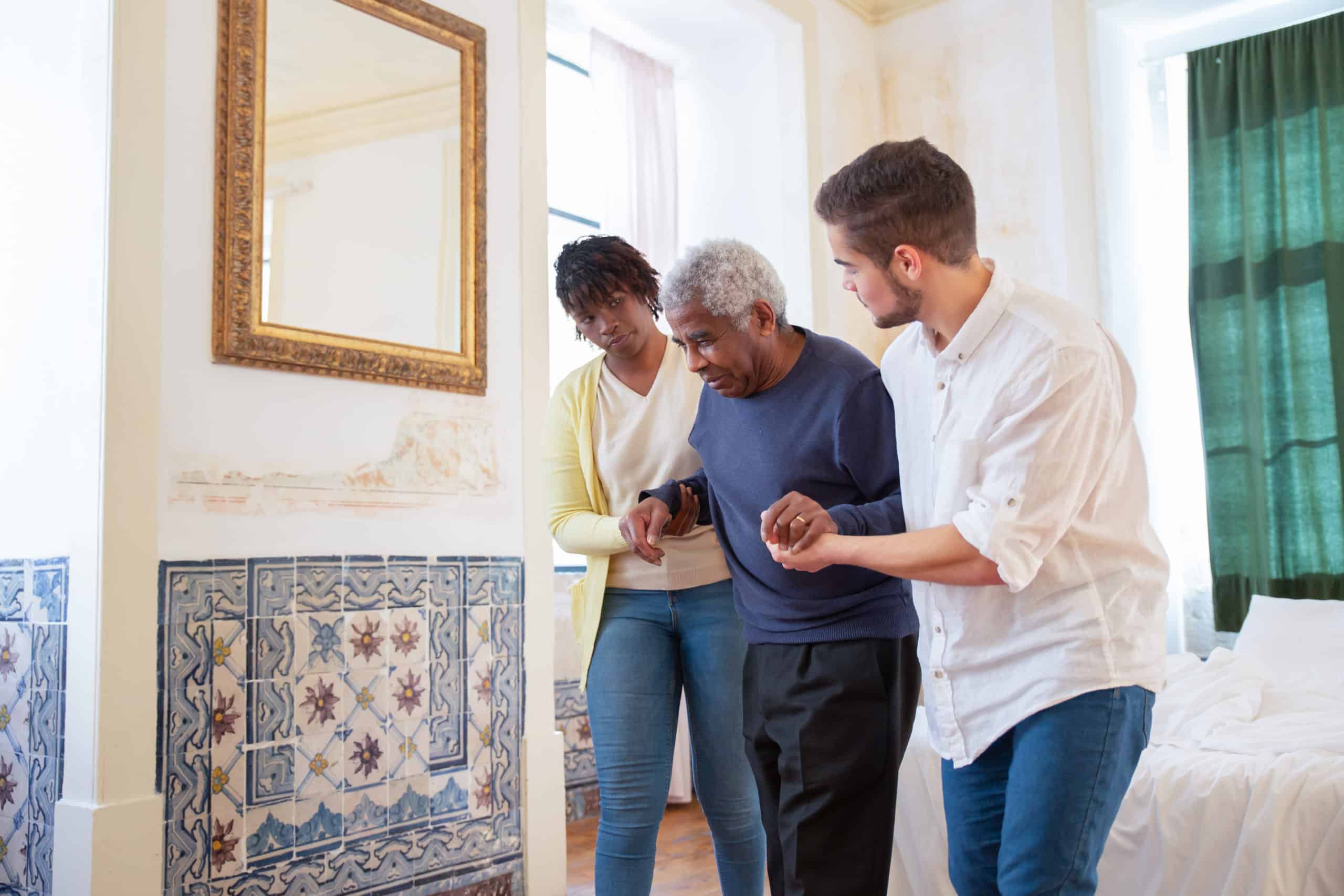The Sometimes Stressful But Rewarding Task Of Caring For Alzheimer’s Patients
Pegasus in-home skilled medical care professionals in Altadena and elsewhere provide a variety of services. Family caregivers rely on their assistance when caring for loved ones with dementia. As a career home health care nurse, you understand the sometimes stressful but rewarding task of caring for Alzheimer’s patients.
The brains of individuals with Alzheimer’s disease atrophy, and the brain cells die. The disease is progressive and terminal. It can be treated, and the progression can occasionally be slowed, but there is no cure.
Like many other conditions, misconceptions swirl around Alzheimer’s. Educating family caregivers is often necessary. Increasing their knowledge potentially increases their ability to care adequately for their loved one.
Alzheimer’s Patients Retain Some Skills
Family caregivers may be focused on the losses. Explain to them that their loved one may retain specific skills despite the symptoms of decline. For example, individuals may still be able to:
- Dance
- Listen to music or books on tape
- Make art or do crafts
- Read
- Sing
- Tell stories
Family caregivers can provide opportunities for these or other activities their loved one enjoyed in the past. Doing so can increase the quality of life for the patient.
Awareness of the home environment is an advantage of your one-on-one care. Your priority is always the well-being of your patient. That includes your observations of the quality of family care.
Most family caregivers are not prepared for the challenges of caring for a loved one with Alzheimer’s. Many are juggling care with their jobs and other family obligations. They are not making time to care for themselves.
Their efforts put them at risk for physical and mental health issues. Their quality of life can decline. That hampers their ability to provide adequate assistance to their loved one.
You can support them by teaching them self-care techniques and stress management for caregivers. Use your networking skills to put them in touch with community resources. Coordinate with your Pegasus team to provide respite care if needed.
Tips To Reduce Caregiver Stress And Frustration
Each patient and each caregiver is different. There are, however, specific recommendations that can help make the situation easier for both. The following can reduce frustrations for both you as the home health nurse and the family caregiver:
- Allow extra time: there are tasks that Alzheimer’s patients can do if they aren’t rushed.
- Establish daily routines: this includes your visits and your assistance as well as the tasks that family caregivers perform.
- Give them a choice: let the patient make choices, but limit the number of items from which to select.
- Keep them awake during the day: Excessive daytime napping can worsen an Alzheimer’s patient’s confusion about time.
- Let the patient help: allow them to do as much as they can with minimal assistance.
- Minimize distractions: turn off the TV or radio when you’re talking to your patient so that they can focus on what you’re saying.
- Simplify instructions: speak clearly and generally present directions one step at a time.
- Staying flexible and taking steps to reduce frustrations reduces stress for all concerned. The patient will receive better care and improved quality of life.
Personal Growth Is A Reward Of Caregiving
Caregiving is an act of love. You can encourage and support family caregivers, especially those who have become overwhelmed and discouraged. Spend some time pointing out the rewards of caregiving, such as the following:
- Clarifying what’s important: caregivers get a sense of what really matters in their life. They revise their goals and place increased value on relationships. Many also feel that they are creating a tradition of caregiving that their children will extend to them as they age.
- Connecting: most people are afraid of being sick or dying alone. Caregivers are “there” for others, offering comfort. Along with helping the patient, caregivers “slow down” and form meaningful connections with their loved one. Some are able to reconcile and forgive past hurts.
- Making a difference: the efforts and dedication of caregivers contribute to the well-being of others. Even a loved one in the last stages of Alzheimer’s knows that someone is caring for them. That makes a difference even if they can’t express it. Caregivers also know that their loved one received good care.
- Personal accomplishments: as a nurse, you have training, knowledge, and experience. Family caregivers are often thrust into the role and learn on-the-job. They have good reason to be proud of rising to the challenge. Many find inner resources of strength, perseverance, and creativity they didn’t know they had.
- Special times: the person they used to be is still within Alzheimer’s patients. Something will make them laugh, or there might be moments of recognition or an expression of affection. Those are treasures that caregivers store in their hearts.
Caregiving can be stressful, but it’s also an opportunity for personal growth and enriching the caregiver’s life.
Pegasus is a licensed Home Care Organization and a Joint Commission Accredited Home Health Care organization. Our skilled nursing professionals in Altadena and our other locations customize their services to meet the needs of each client. Providing care to Alzheimer’s patients can be a rewarding part of your home health care nurse career.

